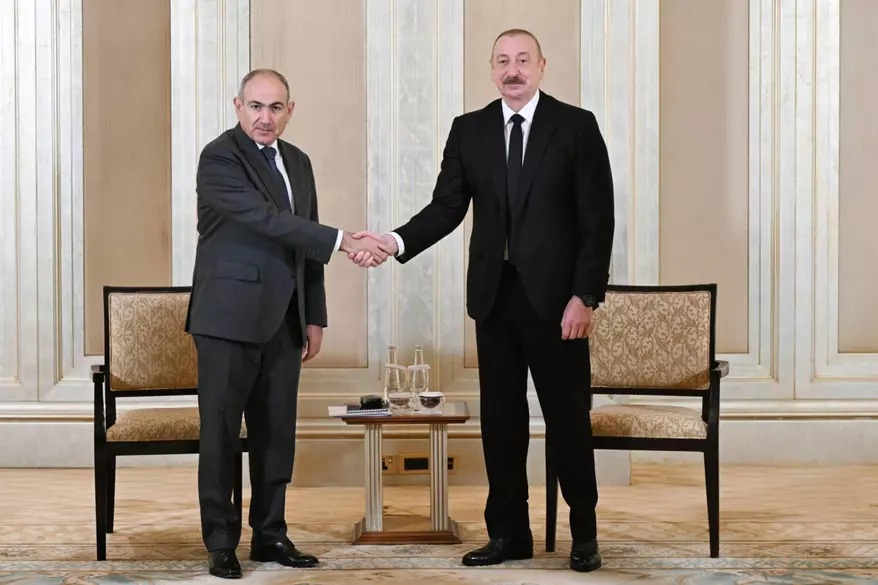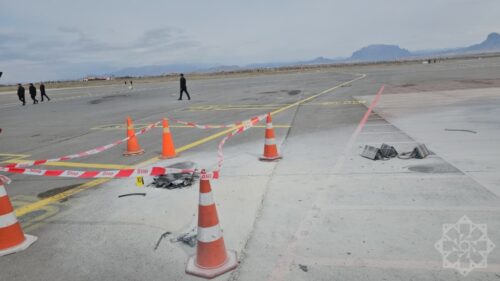
US-brokered Armenia-Azerbaijan deal redraws South Caucasus diplomatic map, says The Washington Times
The Armenia-Azerbaijan peace deal is more than a bullet point on U.S. President Donald Trump’s Nobel Peace Prize checklist. The U.S.-brokered breakthrough has redrawn the diplomatic map of the South Caucasus, displacing Russia and Iran while positioning Washington as the primary mediator, The Washington Times writes.
As noted, signed at the White House by Azerbaijani President Ilham Aliyev and Armenian Prime Minister Nikol Pashinyan, the deal opens the “Zangezur corridor”, which links Nakhijevan to Turkey.
Part of the agreement included granting the U.S. exclusive rights to develop the “Zangezur corridor”, which the U.S. government has called the Trump Route for International Peace and Prosperity, or TRIPP, for the next 99 years.
The agreement, forged nearly five years after Azerbaijan’s victory in the Second Karabakh War, reflects the desire of Armenia and Azerbaijan to reduce dependence on Moscow and Tehran while offering new economic, security and geopolitical opportunities for the region.
Both leaders were happy to share the credit with Mr. Trump at a White House ceremony earlier this month. Since then, Aliyev has been one of the most enthusiastic backers of an international movement to reward the American president with the Nobel Peace Prize he has openly coveted.
The publication states that the power shift in Central Asia, away from Russia and Iran and toward Turkey and the U.S., has its roots in the end of the Second Karabakh War in 2020, a conflict that resulted in about 5,000 military casualties and 100,000 displaced Armenians.
With Russia bogged down in Ukraine, the instability in the Southern Caucasus created a sense of urgency for a peace deal brokered by the U.S.
“Since the Second Karabakh War, no international body could break the deadlock,” said Hay Eytan Cohen Yanarocak, a senior researcher at the Moshe Dayan Center at Tel Aviv University.
Both countries have had turbulent relationships with Moscow in recent years.
In Azerbaijan, U.S. oil giants such as Exxon Mobil, Chevron and ConocoPhillips have made major investments in the Baku-Tbilisi-Ceyhan pipeline, which transports Caspian crude to Europe.
Azerbaijan’s importance extends beyond energy. It plays a vital role in NATO logistics, and Washington sees the TRIPP corridor as a way to bypass Russian and Iranian choke points, tightening U.S. economic and strategic ties to the region.
For Turkey, the deal is a diplomatic win and an economic opportunity. The “Zangezur corridor” also gives Turkey deeper influence in Azerbaijan and expands its reach to Central Asia.
Azerbaijan remains a trusted partner for Turkey and Israel, even as tensions persist over the Gaza Strip and Syria.
Rauf Mammadov, an energy and strategic consultant and former state oil company official, emphasized that the U.S. seeks “to extend its influence without a military presence. The economic and strategic ramifications are huge. This is an opportunity to counterbalance Russia’s declining influence.”
Tehran views the TRIPP corridor as a direct challenge to its regional dominance.
Moscow, caught off guard by U.S. and Turkish momentum, remains wary. “Russia is struggling to maintain its traditional influence as the U.S. pushes into the region,” Mammadov said.



